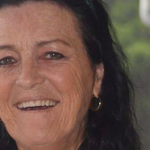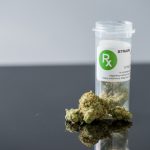Government Promises to Finally Make Medicinal Cannabis Accessible

At a Council of Australian Governments health council meeting last Friday, all state and territory health ministers signed onto a national scheme to streamline patient access to medicinal cannabis products.
Federal health minister Greg Hunt said prescribing cannabis medicine will be left up to medical professionals. But once that decision is made, a medicinal cannabis script will only need to go through a single approval process via the Therapeutic Goods Administration (TGA).
Based on a model launched in NSW last month, the national system will provide patient access to medicinal cannabis within 48 hours, according to the minister. Currently, a prescription needs dual approval from both the TGA and state government, which is a process that can take months.
Legal, but inaccessible
However, those at the frontline of the medicinal cannabis debate in this country aren’t holding their breath over government promises these days.
It’s been over two years since legislation was passed to set up a system of legal cultivation and production of cannabis products for medicinal use. But, despite the Office of Drug Control (ODC) having now issued 35 cannabis-related licences, there’s still no domestic product available.
In February last year, minister Hunt launched a fast-track medicinal cannabis importation scheme to cover the delay in local product availability. This imported medicine is now stockpiled in warehouses, as only 525 patients, out of an estimated 100,000 who use cannabis, have been permitted access.
And on top of all this, the Turnbull government has twice blocked rapid access to imported products to the terminally ill since November 2016.
Let’s wait and see
“Technically, removing an entire tier of unnecessary bureaucracy from the process should expedite applications,” Dr David Caldicott said. The ANU medical school clinical senior lecturer added that “most long-suffering supporters will welcome” the recognition that the current system isn’t working.
The doctor has been running a medicinal cannabis workshop for Australian medical practitioners since June last year. And he warned that “the influence of those under the influence of Big Pharma and Big Green has been the driving force in Australia, not patient necessity.”
And so far, he went on, there’s not a lot of evidence that the NSW model has made any great improvements.
“So, I suppose, it’d be fair to say that while I applaud the apparent intent, experience to date entitles me to a degree of scepticism about the implementation,” Dr Caldicott told Sydney Criminal Lawyers®, “at least until patients and prescribers are reporting improved access.”
From those denied access
Medicinal Cannabis Users Association of Australia (MCUA) president Deb Lynch is dubious about the health minister’s scheme. And she ought to be, she’s been trying to obtain a prescription for cannabis medicine to treat her medical condition from multiple doctors for several years now.
“The announcement is just another in the long line of empty promises and is already having an impact on patients who are angry and frustrated that yet another carrot is being dangled,” Ms Lynch made clear. She further said that patients are saying “stuff the government, just grow your own.”
According to Ms Lynch, the main problem is obtaining a prescription in the first place, as doctors aren’t “confident and competent enough to prescribe appropriate doses and strains.” This is an issue that Dr Caldicott’s cannabis workshop seeks to redress.
So, in effect, the long-term patient advocate believes that the new system will mean that “nobody can have it in two days, instead of nobody can have it in three months.” And besides this, Ms Lynch stressed that the price of the imported cannabis medicines is way out of the reach of most patients.
“This is why the MCUA advocate for home grow for those who want to provide for themselves or their loved ones,” she continued. Along with “the need for protection from prosecution.”
Game changing legislation
Meanwhile, there’s a medicinal cannabis access bill before NSW parliament that would allow registered patients to buy black market cannabis without fear of prosecution. The Adam Searle bill would also set up a lawful supply chain that ensures patient access to raw and botanical products.
Long-time cannabis activist Loren Paul Wiener is a leading proponent of the NSW Labor access bill. He explained that it’s currently up for debate in the state upper house and it has strong support from around half the Legislative Council members.
In regard to minister Hunt’s faster access scheme, Mr Wiener questions what type of cannabis products the expedited process will provide access to. He points out that there would be no need for the Labor bill if the government was prioritising real cannabis medicines in the first place.
Redefining cannabis
Mr Wiener has warned in the past that as the Australian medicinal cannabis system lethargically develops, it seems that governments are changing the definition of what can be classed as cannabis medicine.
The Public Health (Medicinal Cannabis) Bill 2016 was passed in Queensland state parliament on October 12 2016. It defines a cannabis product as any part of a plant of the genus cannabis, or a product derived from said plant, as well as a product with a similar pharmacological effect.
And Wiener found that in a Queensland Health media pack released prior to the passing of the legislation that a cancer pain treatment called Subsys was being referred to as a synthetic cannabinoid, when the product actually contains the, sometimes deadly, synthetic opiate Fentanyl.
Mr Wiener also produced a 2016 letter from ODC head Bill Turner, where he states that crops being grown for medicinal purposes are classed as medical cannabis, regardless of THC levels, which could lead to industrial hemp, with no real medicinal benefits, being classified as medical marijuana.
Smoke and mirrors
So, while medicinal cannabis is legal in 29 US states, and over 130,000 registered medical marijuana users have access to the medicine in Canada, it seems that the Turnbull government is hellbent on being seen to be doing something, whilst stymieing patient access to real cannabis medicines.
And minister Hunt’s new rapid patient access proposal might be just as successful as last year’s importation scheme, or as likely as his recent announcement that regulations are to be changed to allow Australia to become the biggest exporter of medicinal cannabis worldwide.







